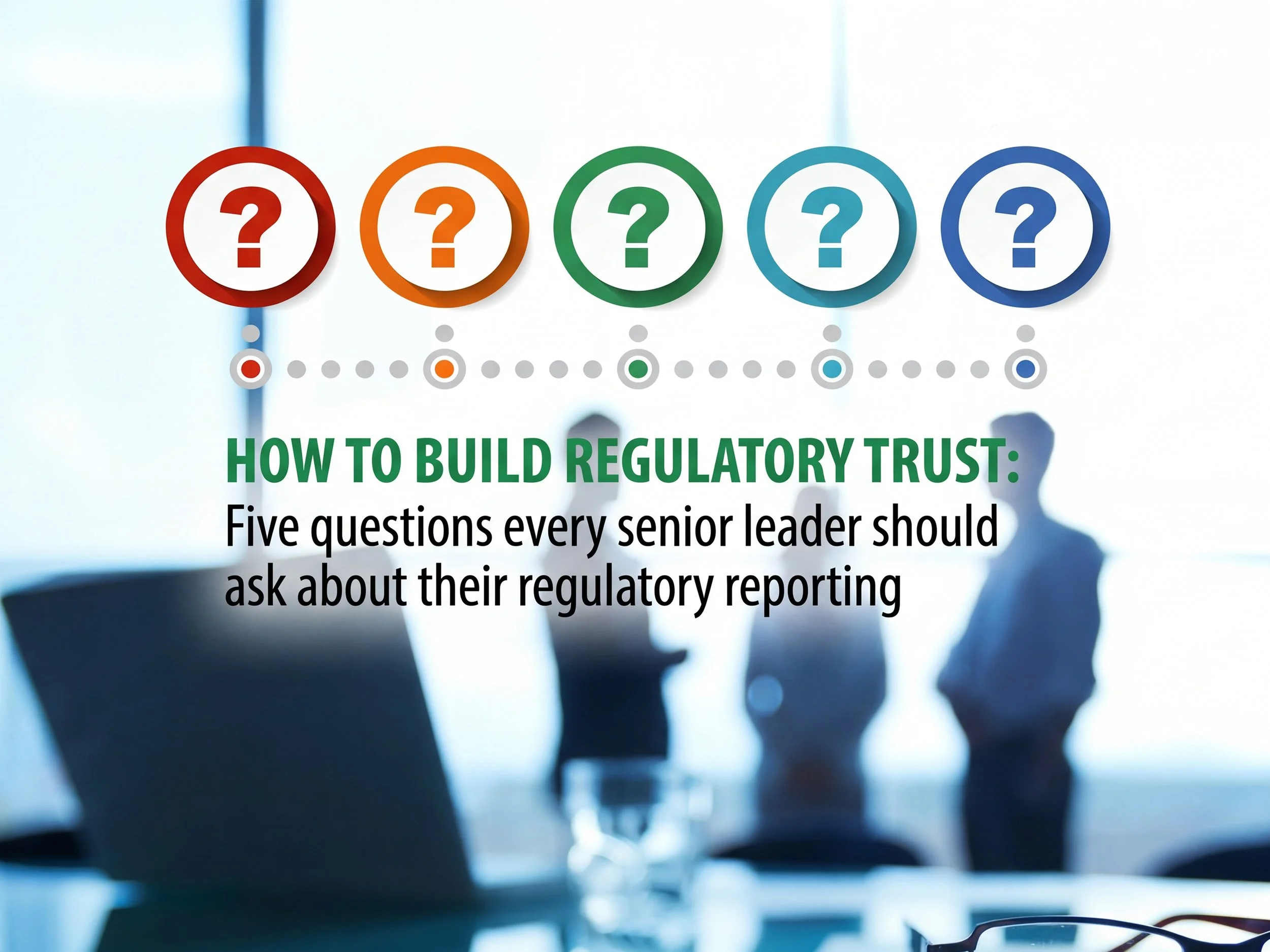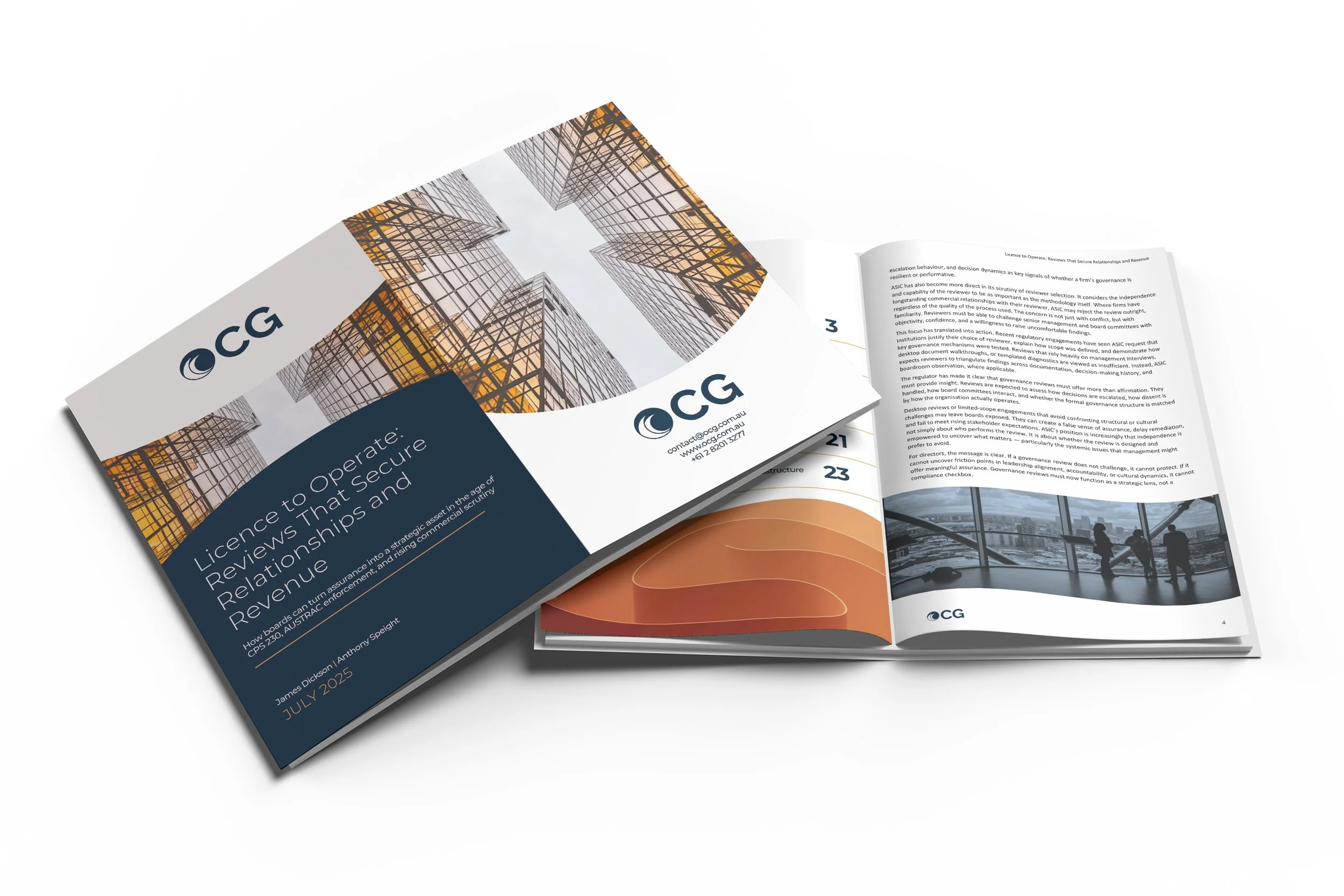AI Tools Are Supercharging SOA Generation; But Don't Ditch Advice Review Processes Just Yet.
There’s no denying artificial intelligence is crashing into the advice space like a freight train. Tools that generate Statements of Advice (SOAs) using generative AI are no longer theoretical. They’re here, they’re working, and they’re fast. For advice practices chasing efficiency, that’s a big deal.
But as we rush to embrace AI-driven workflows, there’s a simple truth we can’t ignore: licensees are still on the hook for the advice that goes out the door. Just because a robot can write it, doesn’t mean advisors can stop reading it.
The Promise of AI in Advice Workflows
Let’s start with what’s exciting.
AI-enabled tools are already lifting adviser productivity by handling structured sections of SOAs such as comparing product features, inserting standard disclosures, aligning recommendations with client data. For large volumes of relatively straightforward advice, the time savings are real. Turnaround times are shrinking, admin burdens are easing and in a world of tight margins and increasing compliance pressure, that’s gold.
More importantly, AI can help enforce consistency and quality in documentation, two things that have long plagued advice practices, especially those with distributed teams or outsourced paraplanning.
Garbage In, Garbage Out
Before firms ditch paraplanners in favour of full automation, it's worth taking a step back.
The quality of an AI-generated SOA is directly tied to the quality of the input prompt. Vague or templated client data in = vague or templated advice out. Here’s the non-negotiable: client goals and objectives must still be recorded in the client’s own words. If the AI, or even the adviser, rephrases them into polished compliance-speak to “fit” the strategy, the line has already been crossed.
Why? Because the process has now been reversed. Rather than building advice to serve the client's true objectives, the objectives have been reshaped to justify the advice. That’s not just a bad habit; the compliance of the document has been immediately undermined and potentially exposes the advisor to AFCA scrutiny and future remediation. It signals that the advice may not be in the client’s best interest and that’s a road no one wants to walk.
You’re Still Liable
Let’s be clear: no AI platform carries the legal responsibility for the advice it produces. Advisors do.
Even the slickest system won’t protect a firm if a recommendation is found to be inappropriate, outdated, or poorly explained. And ASIC won't be asking whether the software passed an internal test suite, they’ll be asking how flawed advice was allowed to reach a client.
The old approach of random quarterly file checks, flicking through 3–4 SOAs and hoping for the best, won’t cut it. With AI in the mix, advice practices need to upgrade their quality assurance processes and assume that errors can slip through undetected, particularly when teams start trusting the tools too much.
Independent Review: From Option to Obligation
Enter File Review as a Service (FRaaS).
At Oceanic Consulting Group, we’ve launched FRaaS to provide licensees and practices with independent, human-led reviews of AI-generated (or paraplanner-prepared) SOAs. Think of it as a safety net, designed not to replace internal checks but to strengthen them.
FRaaS plugs into existing workflows. Whether advisors are using AI to draft the whole document or just streamline data entry, OCG’s compliance team reviews outputs for structure, tone, accuracy, and critically, client alignment. That means checking assumptions, sniffing out inconsistencies, and ensuring each SOA meets regulatory expectations and client needs.
The Road Ahead: AI With Guardrails
The next few years will see AI take a bigger role in advice; there’s no doubt about it. But the firms that succeed won’t be the ones who chase technology for technology’s sake. They’ll be the ones who use AI as a lever, combining speed with scrutiny, automation with accountability.
Because in advice, trust is everything. And trust isn’t built on the speed of generating an SOA. It’s built on the quality of explanation, how accurately it reflects the client’s intent, and how confidently the advisor can stand behind the recommendation.
AI can draft it… Advisors still have to own it!
To explore how Oceanic’s FRaaS solution can strengthen your advice processes and help you scale with confidence, contact Anthony Speight or James Dickson at Oceanic Consulting Group (OCG).





















